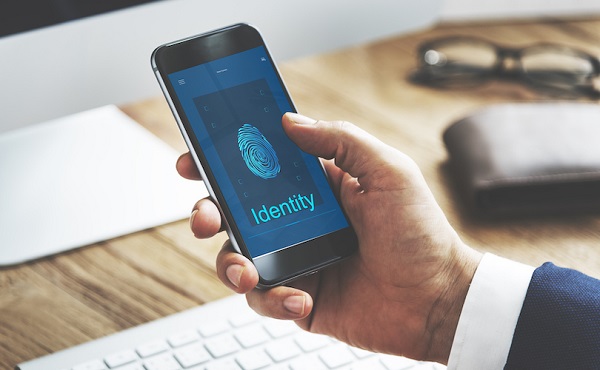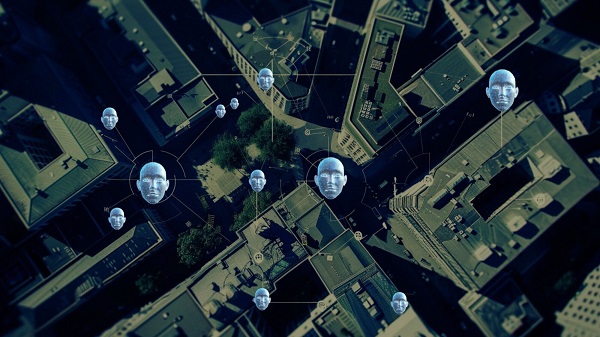Digital ID
Trudeau gov’t secretly polling Canadians to gauge their acceptance of planned digital ID

From LifeSiteNews
The Department of Immigration commissioned a pollster to ask Canadians how comfortable they would be with a ‘digital version’ of their passport, despite multiple parliamentary committees having rejected any sort of national ID system.
Prime Minister Justin Trudeau’s immigration ministry has been secretly asking Canadians via surveys if they would accept a mandatory national identification program that likely would require each citizen to always have a type of “digital” passport on them.
Canada’s Immigration Minister Marc Miller’s department, as reported by Blacklock’s Reporter, commissioned a company called Advanis Inc., an Ontario-based pollster, to poll Canadians on its “Passport Client Experience Survey.” This poll has been ongoing since December of last year, with pollsters targeting “clients who applied for a passport.”
The main question the poll asked was, “How comfortable would you be sharing a secure digital version of the passport within Canada as an identity document?”
Thus far, the Department of Immigration has not commented about its poll.
The poll comes despite multiple parliamentary committees having rejected numerous times any sort of national ID system, noting how such a system would be extremely costly.
One of Canada’s former privacy commissioners, Robert Marleau, in a 2003 report titled “Why We Should Resist A National ID Card For Canada,” called any type of national ID card “the most significant privacy issue in Canadian society.”
“A national identification card would require an elaborate and complex national identity system with database, communications networks, card readers, millions of identification cards and polices and procedures to address a myriad of security, privacy, manageability, and human factor considerations. The costs associated with such a system would be enormous. Just creating it could cost between $3 billion and $5 billion with substantial additional costs to operate it,” he observed.
When it comes to a national digital ID system, as reported by LifeSiteNews last week, a briefing note from members of Trudeau’s cabinet claims that a national digital ID system is “easier” and “securer” than traditional identification but insists it will remain “optional.”
The contents of the briefing note come after federal regulators previously disclosed they are working on digital credentials for Canadians despite the fact that MPs have repeatedly rejected the proposal over safety concerns, as reported by LifeSiteNews.
Digital IDs and similar systems have long been pushed by globalist groups like the World Economic Forum under the guise of ease of access or security.
However, critics have warned that with a “digital ID, there is no public consensus, only collusion,” and that the purpose of such a system is to eliminate “choice” in favor of “coercion and contradiction to confuse our cognition towards total control.”
The Conservative Party has repeatedly warned Canadians about “mandatory digital ID” systems. While the Trudeau government insists this program will be optional, Conservative leader Pierre Poilievre has promised to introduce a new bill that would “expressly prohibit” digital IDs in Canada.
Poilievre is also opposed to a federal digital dollar, plans for which are currently on hold.
Censorship Industrial Complex
China announces “improvements” to social credit system

 MxM News
MxM News
Quick Hit:
Beijing released new guidelines Monday to revamp its social credit system, promising stronger information controls while deepening the system’s reach across China’s economy and society. Critics say the move reinforces the Communist Party’s grip under the banner of “market efficiency.”
Key Details:
- The guideline was issued by top Chinese government and Communist Party offices, listing 23 measures to expand and standardize the social credit system.
- It aims to integrate the credit system across all sectors of China’s economy to support what Beijing calls “high-quality development.”
- Officials claim the new framework will respect information security and individual rights—despite growing global concerns over surveillance and state overreach.
Diving Deeper:
China is doubling down on its social credit system with a newly issued guideline meant to “improve” and expand the controversial surveillance-driven program. Released by both the Communist Party’s Central Committee and the State Council, the document outlines 23 specific measures aimed at building a unified national credit system that will touch nearly every corner of Chinese society.
Framed as a tool for “high-quality development,” the guideline declares that credit assessments will increasingly shape the rules of engagement for businesses, government agencies, and individual citizens. The system, according to the National Development and Reform Commission (NDRC), has already played a role in shaping China’s financial services, government efficiency, and business environment.
Critics of the social credit system have long warned that it serves as an instrument of authoritarian control—monitoring citizens’ behavior, punishing dissent, and rewarding obedience to the Communist Party. By integrating credit data across all sectors and enforcing a “shared benefits” model, the new guideline appears to entrench, not ease, the Party’s involvement in everyday life.
Still, Beijing is attempting to temper foreign and domestic concerns over privacy. The NDRC emphasized that the system is being built on the “fundamental principle” of protecting personal data. Officials pledged to avoid excessive data collection and crack down on any unlawful use of information.
Digital ID
Wales Becomes First UK Testbed for Citywide AI-Powered Facial Recognition Surveillance

-

 2025 Federal Election2 days ago
2025 Federal Election2 days agoNo Matter The Winner – My Canada Is Gone
-

 2025 Federal Election2 days ago
2025 Federal Election2 days agoASK YOURSELF! – Can Canada Endure, or Afford the Economic Stagnation of Carney’s Costly Climate Vision?
-

 Alberta2 days ago
Alberta2 days agoMade in Alberta! Province makes it easier to support local products with Buy Local program
-

 2025 Federal Election2 days ago
2025 Federal Election2 days agoCSIS Warned Beijing Would Brand Conservatives as Trumpian. Now Carney’s Campaign Is Doing It.
-

 2025 Federal Election1 day ago
2025 Federal Election1 day agoInside Buttongate: How the Liberal Swamp Tried to Smear the Conservative Movement — and Got Exposed
-

 Alberta2 days ago
Alberta2 days agoProvince to expand services provided by Alberta Sheriffs: New policing option for municipalities
-

 Bruce Dowbiggin1 day ago
Bruce Dowbiggin1 day agoIs HNIC Ready For The Winnipeg Jets To Be Canada’s Heroes?
-

 Dr. Robert Malone1 day ago
Dr. Robert Malone1 day agoThe West Texas Measles Outbreak as a Societal and Political Mirror







